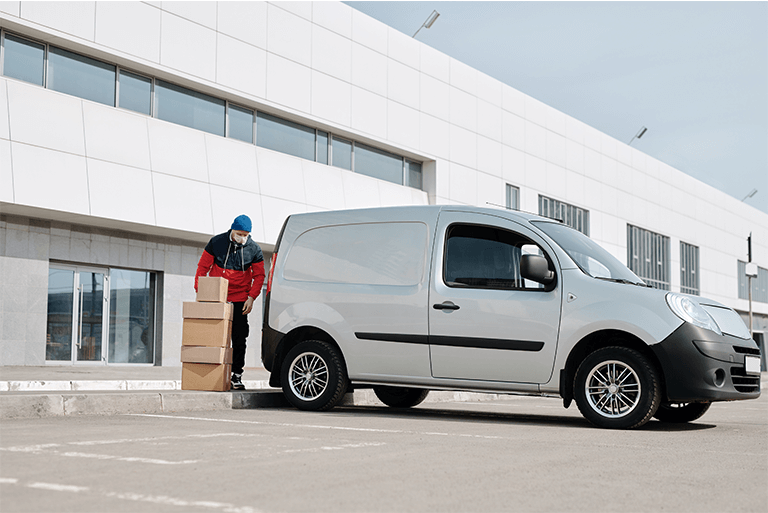Van insurance is a sort of motor insurance that is created exclusively for vans. The main reason for its creation was to cater to the needs of those who transport people or goods as part of their job. This insurance covers damages that may cause personal injury, so it could be useful if you work in a retail or restaurant business where one is often carrying heavy goods while on the job. van insurance is also called personal motor insurance and this type of motor finance has been around for decades.

The principle behind van insurance is basically the same as car insurance: make sure you have sufficient coverage in place if anything should happen during transportation. The biggest difference between car and van insurance is due to van ownership rates. Insuring a van is often more expensive than insuring a vehicle, and insuring a van for business purposes typically costs more than insuring a van for personal usage. Much of the price structure is based on risk assessment.
What is van insurance?
Van insurance is a commercial insurance that covers the vehicle owner and any third parties who may be involved if something happens during transportation. It also pays for anything that results from an accident, such as recovery costs or legal fees incurred by the van owner or driver. It covers a number of different situations, such as:
What is not covered by van insurance?
The most important thing to note about van insurance is that only damages caused directly by the vehicle are covered. This means the buyer must pay for things like medical expenses, diminished value, pain and suffering or other indirect liabilities. These are not part of a standard policy and must be purchased separately. One of the most controversial and debated subjects when it comes to van insurance is what it means by third party liability.
This only covers people who are outside the vehicle; any passengers, children in the back of the cargo area, or passengers in other vehicles involved in an accident with you is not covered on a basic policy. If you want to cover these people, you must get additional protection through a special add-on called Third Party Only cover. This sort of insurance is mandatory by law in some countries, but optional elsewhere.
How does it work?
Once you have decided on a van insurance provider and purchased what you need, the insurance policy will be valid for a year. The process of renewal is easy and can be done online. Generally, the customer will receive a notice of renewal around 4 weeks before the policy expires. The customer then has the opportunity to renew at that point or not to do anything until after the renewal period. It should also be noted that if you allow your policy to lapse by doing nothing, it may invalidate your no claims bonus (if applicable). If a customer wants to cancel their policy they must do so in writing at least 10 days prior to their expiry date.
It will cover the legal requirements, such as third-party liability and personal injury, but extras can be purchased to cover particular needs, such as replacement motor parts or coverage for sub-contractors. Many policies will not include the driver on the policy, which means that any policy that does not have a named driver is specifically written to allow for operating a vehicle without a named driver. It is possible to have one person with access to a vehicle insured on the policy, and another who drives it regularly.
What do I need to know about claiming?
A claim is made to get the necessary funds to cover the expenses related to an accident or theft that happened during transportation of goods or people by someone who is insured under a van insurance policy. The process of submitting a claim may be long and complicated, though it is a simple and straightforward process if done correctly. When the claim is submitted all parties involved must be notified by the insurance firm.
Usually, this involves the police being called to make an accident report. Once this has been completed, all parties involved must be notified by sending copies of the police report to all parties involved. If you are involved in an accident resulting in personal injury or damage to property, then your insurance company will need to be informed immediately so that appropriate action can be taken.
What does it include?

In the event of an accident, it can protect you against third-party costs. Typically, van insurance will pay for and cover the expenses of repairing your van, as well as potentially replacing it if it is written off or if you require a replacement vehicle while the repair is being completed. Even in the event of theft, it will cover the expenses of replacing the van and getting it back on the road. Many also offer additional protection from liability issues as well as a range of other benefits to make sure you are completely covered in a number of situations.
Van insurance agencies offer many different policies for customers across a wide range of circumstances – from small vans for personal use to large commercial vehicles for business use – and they can help you decide on exactly what’s right for your needs. Generally, these types of policies offer coverage for motor accidents and third-party costs if somebody is injured or someone suffers property damage in the event of an accident. Along with that, you can also check out van insurance facts.
FAQ:
Is Van Insurance Required?
The simple answer is yes. You cannot lawfully drive your van on public roads unless you have insurance, just as you cannot drive a vehicle unless you have insurance. In some areas, you will be stopped immediately. In others, your vehicle will be impounded until you can show proof of insurance.
Does my business need a van insurance policy?
If you transport goods or people as part of your business, you need a van insurance policy. The company must be listed as the main operator and driver on the policy, and all other drivers must have permission from the company to drive their vehicles for work purposes.



